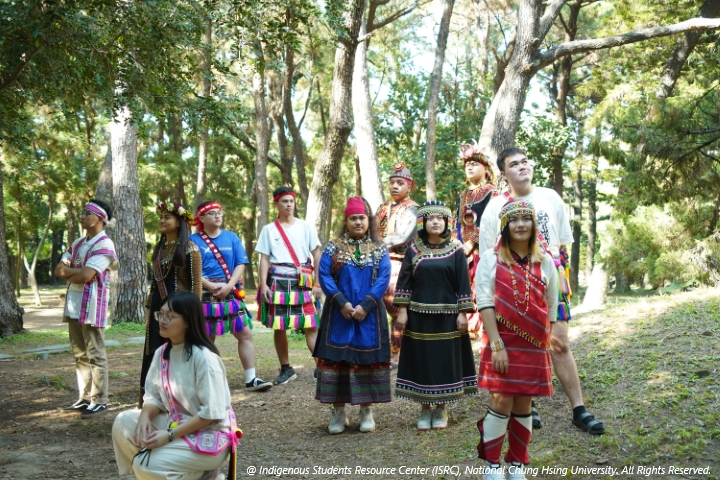Source: Indigenous Students Resource Center (ISRC), National Chung Hsing University Edited by Kai-Jung Chi, Office of International Affairs Jen-Wen Chang, Office of International Affairs
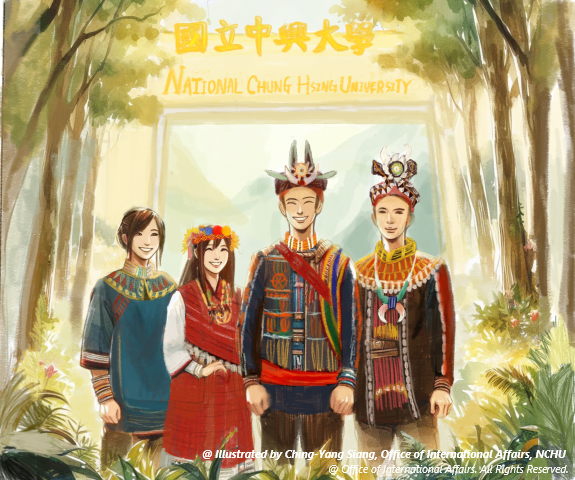
In the year 2000, Jared Diamond, a renowned biogeographer and anthropologist, published an article titled "Taiwan’s Gift to the World" in the prestigious journal Nature, in which he introduced to the world the influence of Taiwan, a small island nation located in the northwest Pacific, on the cultures of the Austronesian language family. Taiwan's Indigenous languages encompass nine out of the ten major subgroups of the Austronesian language family. Currently, Taiwan officially recognizes 16 Indigenous ethnic groups, each with its own distinct language and culture, all belonging to the Austronesian ethnic group. National Chung Hsing University (NCHU), located in the heart of Taiwan, is situated close to several Atayal and Seediq communities and therefore bears the responsibility of protecting, preserving, and passing on Indigenous cultures.
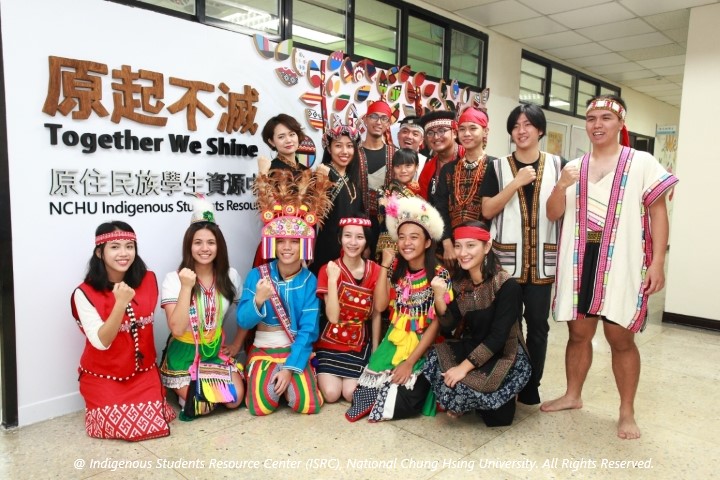
National Chung Hsing University (NCHU) currently enrolls 165 Indigenous students from various tribes, including the Amis, Atayal, Paiwan, Bunun, and Puyuma, among others. In 2017, the university established the Indigenous Students Resource Center (ISRC) guided by the core spirit of "原起不滅 (The Original Never Fades) —Together We Shine". The center aims to provide enriched learning resources and foster high-quality interactive communication among Indigenous students. It strives to strengthen the sense of belonging and deepen cultural identity among these students through its initiatives and support services.
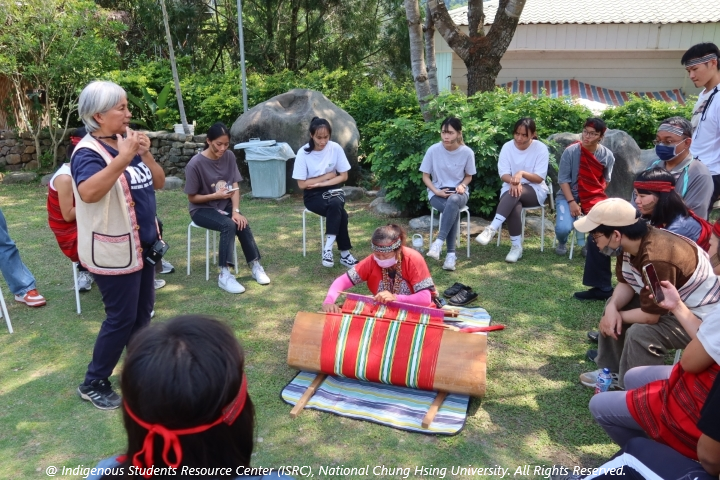
Dialogue with History and Culture: Uncover the Heart's Home
In 2023, the ISRC led students to the Lijia Tribe in Taitung, where they learned to sing the beautiful songs of the Paiwan tribe and cultivate Indigenous crops, such as millet. Through intensive training, they inherited valuable knowledge of Indigenous culture. Lin, a Paiwan student majoring in Horticulture, mentioned in the sharing session that the millet culture in his tribe was gradually diminishing, but thanks to this activity, he had the valuable opportunity to acquire millet cultivation techniques through hands-on experience and understand the diversity of native millet varieties in Taiwan. In the future, he hopes to bring millet back to his hometown, reviving this fading cultural memory and ensuring its preservation.
Furthermore, in April 2023, the ISRC organized an educational expedition for students to explore Indigenous communities. They visited the Qing Liu Tribe (Alang Gluban) in Ren'ai Township, Nantou County, the place where the Seediq people, who fought against colonialism during the Japanese invasion, were forcibly relocated. With the guidance of tribal members, students gained profound insights into the Musha (Wushe) Incident of the 1930s and had the chance to delve into the Seediq tribe's hunting culture and hemp weaving techniques.
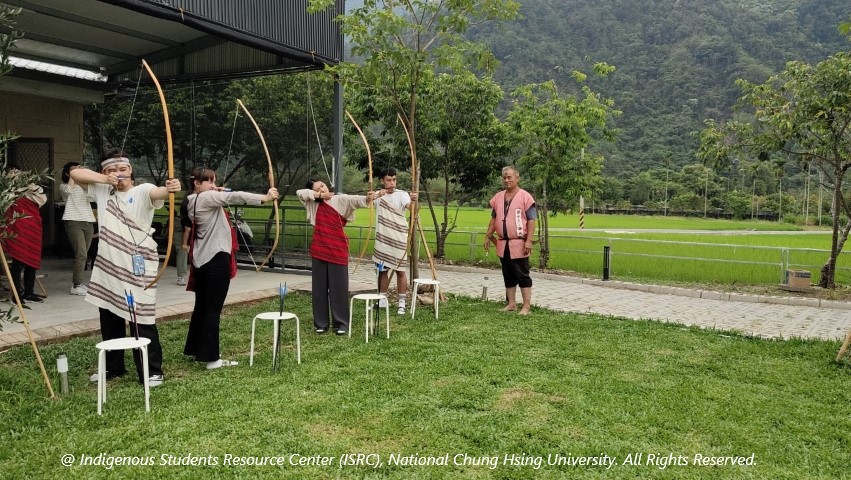
Dialogue with Ethnic Communities: Cultivate Cultural Identity
In May 2023, the ISRC also held the "Kivala Tribe Exhibition Corner". "Kivala" means "visit" in the Paiwan language. The event featured thematic exhibitions on topics such as ethnology and issue-based literature, hands-on experiences in Indigenous craftsmanship like bracelet and bookmark weaving, as well as displays showcasing various aspects including tribal totems, aboriginal languages, native plants, spices, and daily life items. Through the exhibition, participating faculty and students gained a deeper understanding of the diverse cultural facets of Taiwan's Indigenous peoples, including topics like microaggressions, identity laws, and other social issues that Indigenous communities often encounter. Through sensory experiences that engage sight, sound, taste, smell, and touch, participants appreciated the beauty of Indigenous cultures. By visiting tribes, engaging in dialogue, and gaining understanding, faculty, and students worked to dispel biases and discrimination stemming from ignorance; ultimately, faculty and students learn to respect and appreciate the unique and rich cultural heritage of all the different ethnic groups on this island.
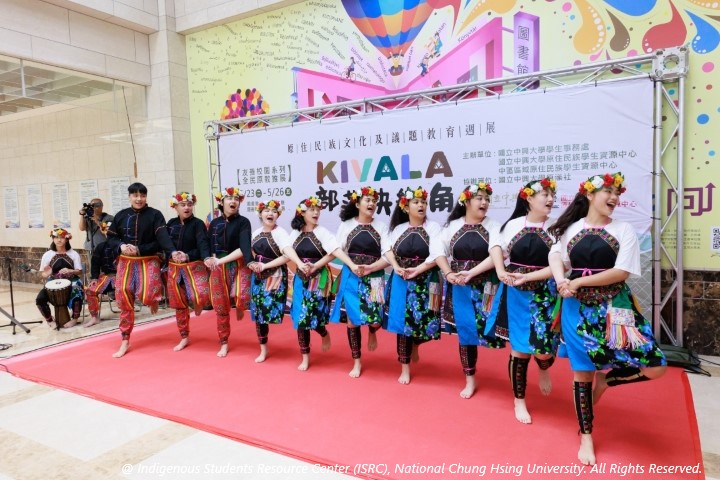
Together We Shine
For many years, the ISRC has provided abundant resources to Indigenous students who are far from home, helping them find a sense of belonging and become closer to their own culture. Consequently, these students have obtained self-assurance, radiated with brilliance and displayed their talents. The campus has further embraced diversity and inclusivity through the interaction and mutual understanding of various ethnic groups. NCHU is committed to nurturing the cultural identity and heritage of Indigenous communities on and off campus, with the aspiration that the rich tapestry of Taiwanese culture will continue to shine brightly on the global stage.
